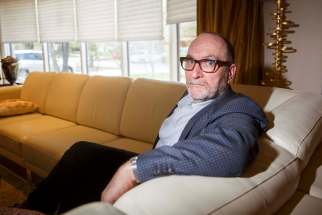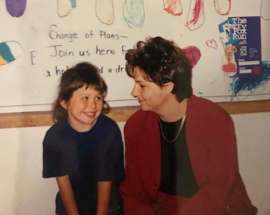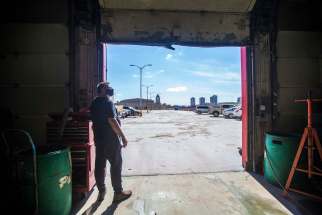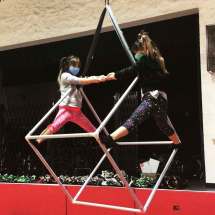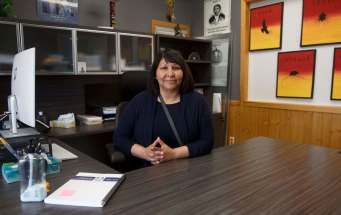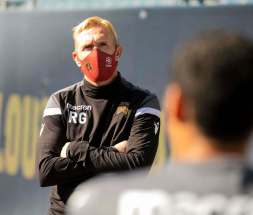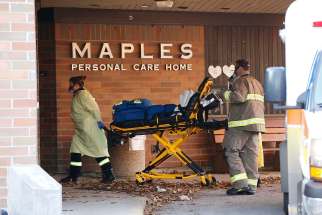Opportunity sprouts up at First Nation Kitigay — to plant — grows jobs, hope at Brokenhead
Read this article for free:
or
Already have an account? Log in here »
To continue reading, please subscribe:
Monthly Digital Subscription
$0 for the first 4 weeks*
- Enjoy unlimited reading on winnipegfreepress.com
- Read the E-Edition, our digital replica newspaper
- Access News Break, our award-winning app
- Play interactive puzzles
*No charge for 4 weeks then price increases to the regular rate of $19.00 plus GST every four weeks. Offer available to new and qualified returning subscribers only. Cancel any time.
Monthly Digital Subscription
$4.75/week*
- Enjoy unlimited reading on winnipegfreepress.com
- Read the E-Edition, our digital replica newspaper
- Access News Break, our award-winning app
- Play interactive puzzles
*Billed as $19 plus GST every four weeks. Cancel any time.
To continue reading, please subscribe:
Add Free Press access to your Brandon Sun subscription for only an additional
$1 for the first 4 weeks*
*Your next subscription payment will increase by $1.00 and you will be charged $16.99 plus GST for four weeks. After four weeks, your payment will increase to $23.99 plus GST every four weeks.
Read unlimited articles for free today:
or
Already have an account? Log in here »
Hey there, time traveller!
This article was published 17/05/2021 (1669 days ago), so information in it may no longer be current.
Near the shore of Lake Winnipeg, where wild rice once grew, sits a plot of land with huge potential on Brokenhead First Nation.
Nitrogen and phosphorus-rich fish bones have been mixed into the earth, preparing the soil for cultural, economic and social growth through a collaborative program with the University of Manitoba.
The program, called Kitigay, an Ojibwa word meaning “to plant,” will link Brokenhead residents with professors and students, to develop a farm.
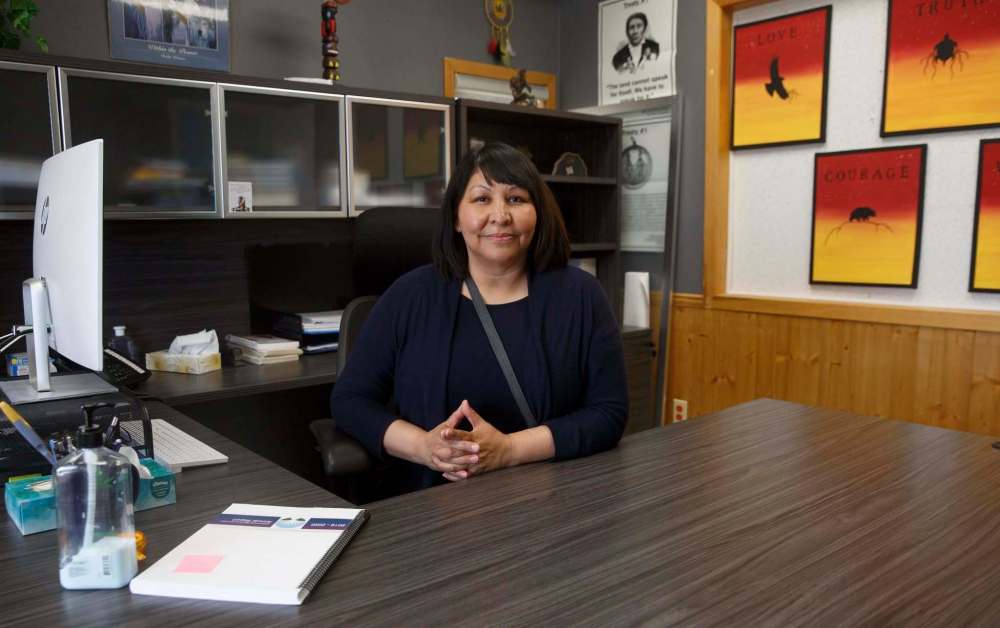
“It started with wild rice, and it grew to many more interests and many more people,” Prof. Shirley Thompson said. “Wild rice is integral to the history of this community.”
Wild rice can be a tricky crop — the original proposal, more than a year ago, suggested a locally grown source would bolster food security of the community and nearby communities.
Now, with a funded internship farm program that includes more than rice, Angela Petrash of the Brokenhead Development Corp. said the project is an economic opportunity for the First Nation.
“This means some really cool jobs for our community members — jobs that we currently don’t offer,” she said. “The bonus is that they’re getting an education through this as well.”
The program will host just over a dozen community members — as paid interns and undergraduate students — as well as students pursuing master’s degrees and doctorates. It will be taught by U of M professors and Indigenous knowledge holders from Brokenhead.
Getting a university-certified education has been a big draw for community members, Petrash said, and will further develop the nation’s economic base.
“It started with wild rice, and it grew to many more interests and many more people. Wild rice is integral to the history of this community.” – Prof. Shirley Thompson
“We’re able to solve some local and non-local food security issues — we all just lived through a pandemic. We knew where there were shortages. This is a way for Brokenhead to contribute to a local economy and benefit its members as well,” she added.
Brokenhead Chief Deborah Smith said food security plays an important role in the First Nation’s approach to education, health and wellness, culture and traditional knowledge, land and infrastructure, and economic development.
“We’ve always had food sovereignty. It got lost as Brokenhead changed historically, and we had access to roads. Historically, people gardened; we had people that hunted and gathered and trapped, and so we had our own food systems,” Smith said.
She noted that affordable, readily available food has long-term health benefits for community members of all ages.
“All the food initiatives that we’re working on, it is to reconnect our people to the land, to their history, but also I think to grow potential in them — to embrace a healthier future,” Smith said.
The program will offer students an opportunity to deepen their understanding of Indigenous food systems and strengthen their social and collaborative skills, by bringing together on and off-reserve members, as well as Indigenous teachers and professors.
“We’re able to solve some local and non-local food security issues– we all just lived through a pandemic. We knew where there were shortages. This is a way for Brokenhead to contribute to a local economy and benefit its members as well.” – Angela Petrash of the Brokenhead Development Corp.
The internship program, funded by Mitac, a national not-for-profit organization, starts in September with two full-year cohorts.
In the beginning, the farm will have test plots of a variety of crops. As the farm matures, the team hopes to collaborate about what to grow and sell. Thompson noted climate change strategy will be integral to the design; water runoff will be reduced, and the team hopes to create a regenerative style of agriculture that maintains biodiversity and the health of the nearby creek.
Students will build a tiny home as part of the project. Smith noted the project will equip community members with skills to address the housing deficit in First Nations communities.
“Something that’s maybe taken for granted is the importance of collaboration in this project,” agriculture Prof. Kyle Bobiwash, who will help teach the program, said.
“We do a fairly poor job at the university of allowing that level of self-determination for people or for communities. We generally prepare people for things that already exist in society; I think it’s really important to give them those opportunities to think beyond.”
“We often think traditional knowledge, Indigenous knowledge is something from years ago that we need to bring back and do the same way, but we often don’t consider that we’re creating Indigenous knowledge by adapting.” – Agriculture Prof. Kyle Bobiwash
The wild rice aspect of the farm — grown inland as opposed to the usual marsh land — presents a “new modern, contemporary way to grow wild rice,” Bobiwash offered as an example.
“We often think traditional knowledge, Indigenous knowledge is something from years ago that we need to bring back and do the same way, but we often don’t consider that we’re creating Indigenous knowledge by adapting.”
One day, there might be chickens, berries or honeybees on the farm. Participants will be able to create their own priorities and ensure the farm serves their needs, Bobiwash said.
“Society is at the space where everything is transitioning. There’s a lot of anti-capitalist thinking, there are bigger wealth gaps… we know we need to really start changing that dialogue and allow communities to have input in how their people are meeting success,” he said.
The goal is to allow community members to lead all aspects of the project.
“It’s giving them skills to be adaptable and allow them to do whatever they want on their own, but it’s also making sure that the skills they’re developing are responsive to who they are as Indigenous people and what that community wants going forward,” Bobiwash said.
julia-simone.rutgers@freepress.mb.ca
Twitter: @jsrutgers

Julia-Simone Rutgers is a climate reporter with a focus on environmental issues in Manitoba. Her position is part of a three-year partnership between the Winnipeg Free Press and The Narwhal, funded by the Winnipeg Foundation.
Our newsroom depends on a growing audience of readers to power our journalism. If you are not a paid reader, please consider becoming a subscriber.
Our newsroom depends on its audience of readers to power our journalism. Thank you for your support.
History
Updated on Monday, May 17, 2021 8:38 AM CDT: Adds em dash in deck
Updated on Tuesday, May 18, 2021 11:04 AM CDT: Adds photo


